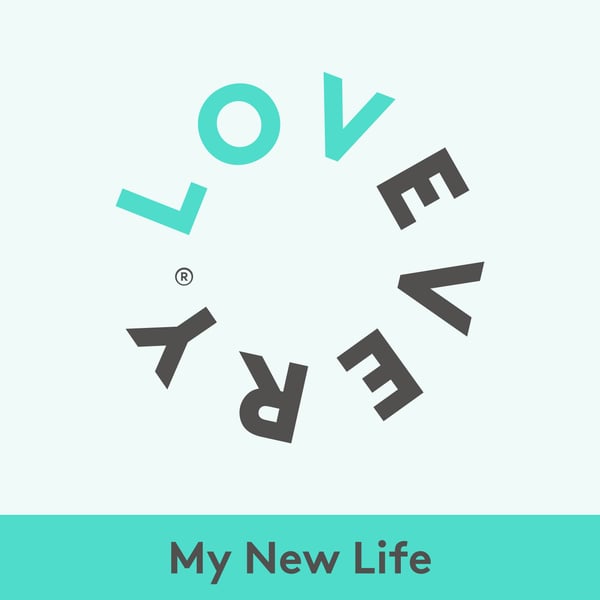When and how to stop breastfeeding
My New Life
Kate Garlinge
4.7 • 654 Ratings
🗓️ 11 January 2023
⏱️ 31 minutes
🧾️ Download transcript
Summary
Host Jessica Rolph breastfed all three of her children, but weaning the last has been an emotional experience. It’s hard to say how many mothers breastfeed beyond that first year or two, but often those mothers feel judged for choosing to continue.
Lyndsey Hookway joins us to help demystify “extended” breastfeeding and offer tips on weaning for those who are ready. She is an Internationally Board Certified Lactation Consultant for The Maternity Collective, based out of the UK.
Highlights:
[1:14] Why do we refer to breastfeeding beyond age 2 as “extended”?
[3:15] Jessica shares her personal experience feeding her daughter, even though it’s clearly not a nutritional experience anymore.
[5:14] What are some of the benefits to the nursing mother?
[7:02] Can breast milk lose some of its nutritional value over time? As volume decreases, why does the child still want to suck?
[8:30] If a mother wants to continue breastfeeding her toddler when a newborn arrives, is there any reason why she shouldn’t nurse both children simultaneously? What does the science say about this?
[11:20] Tender breasts are common with pregnancy and often initiate a natural weaning process.
[13:11] Is there an optimum period to wean your child?
[16:13] Lyndsey talks about hormonal fluctuations that can cause sadness after weaning, as well as temporary difficulty sleeping.
[18:09] How to handle a toddler who keeps asking to be breastfed at night?
[21:03] What is step one for a mother who wants to start the weaning process?
[23:21] Lyndsey shares some additional tips for weaning during the day.
[26:10] What to do if you’re feeling anxious about the weaning process.
[28:54] Jessica shares takeaways from her conversation with Lyndsey Hookway.
Mentioned in this episode:
Brought to you by Lovevery.com
Find Lyndsey @Lyndsey_Hookway
Receive weekly emails about your child’s development, and stay in the know about new play essentials, promos, and more by signing up at Lovevery.com
Follow Lovevery and Jessica Rolph on Instagram
Listen to Perspectives on feeding: Baby-led weaning with Jenny Best
Transcript
Click on a timestamp to play from that location
| 0:00.0 | Welcome to My New Life, a Love Every podcast. |
| 0:12.3 | In this season of the podcast, we take a look at transitions. |
| 0:15.9 | From diaper to potty, crib to bed, saying goodbye to pacifiers, |
| 0:20.1 | we're here to support you through all these |
| 0:22.8 | tricky transitions and more, even the ones that we as parents resist. I'm your host, Jessica Rolfe. |
| 0:33.6 | Breastfeeding. It's something I did with all three of my children. And as I share in this interview, |
| 0:38.8 | weaning the last has been an emotional experience for me. But how many mothers in the U.S. |
| 0:43.8 | breastfeed beyond that first year or two? It's difficult to say. Here to help us demystify |
| 0:49.3 | extended breastfeeding and offer tips on weaning for those who are ready is Lindsay Hookway, |
| 0:55.9 | International Board Certified Lactation Consultant for the Maternity Collective. |
| 1:00.5 | She is based out of the UK. |
| 1:02.5 | I asked her to tell us why she thinks extended breastfeeding should be just called breastfeeding. |
| 1:07.6 | Lindsay, you said that extended breastfeeding should really just be called |
| 1:11.4 | breastfeeding. So tell us about that. Well, so my opinion, it is my opinion here, |
| 1:18.2 | but I think calling it extended breastfeeding immediately is quite othering and it makes |
| 1:25.7 | people feel like they're doing something that is a little bit |
| 1:28.9 | taboo or a little bit deviant. It's sort of outside the parameters of in inverted commas normal. |
| 1:37.2 | And that's why my personal opinion is that we shouldn't really be calling it extended breastfeeding. |
| 1:43.2 | We should just be calling it breastfeeding because there's plenty of research from anthropological data that suggests that the normal duration of breastfeeding is somewhere between two and seven years for most human mammals. So if you leave a child to just wean when they're ready to wean, |
| 2:03.6 | most children will wean somewhere between the age of two and seven. So when we start talking about |
| 2:09.3 | extended breastfeeding, we're making mothers and parents who are doing something that |
| 2:15.7 | it actually falls within the parameters of the biological |
... |
Please login to see the full transcript.
Disclaimer: The podcast and artwork embedded on this page are from Kate Garlinge, and are the property of its owner and not affiliated with or endorsed by Tapesearch.
Generated transcripts are the property of Kate Garlinge and are distributed freely under the Fair Use doctrine. Transcripts generated by Tapesearch are not guaranteed to be accurate.
Copyright © Tapesearch 2025.

